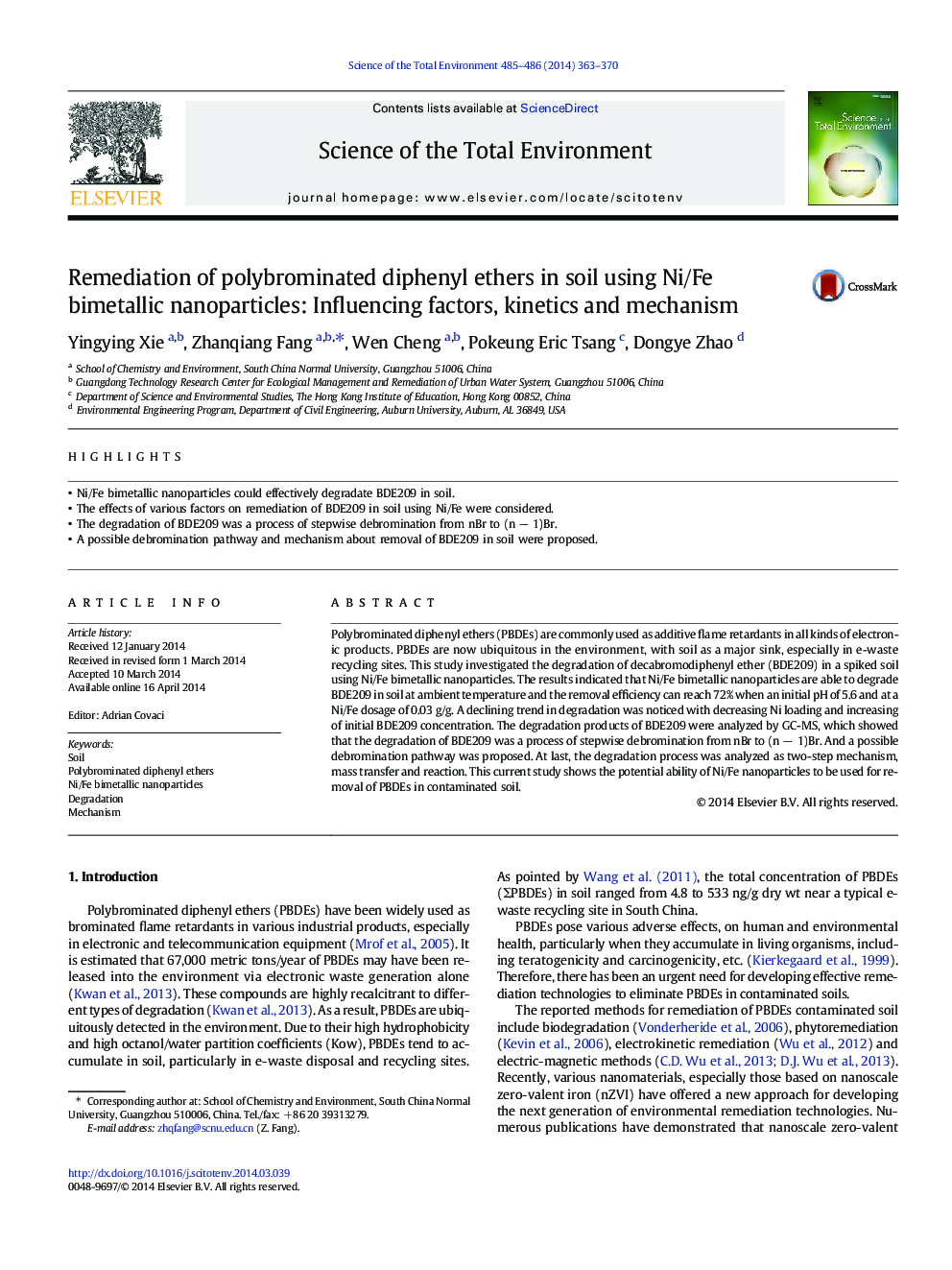| Article ID | Journal | Published Year | Pages | File Type |
|---|---|---|---|---|
| 6330402 | Science of The Total Environment | 2014 | 8 Pages |
Abstract
Polybrominated diphenyl ethers (PBDEs) are commonly used as additive flame retardants in all kinds of electronic products. PBDEs are now ubiquitous in the environment, with soil as a major sink, especially in e-waste recycling sites. This study investigated the degradation of decabromodiphenyl ether (BDE209) in a spiked soil using Ni/Fe bimetallic nanoparticles. The results indicated that Ni/Fe bimetallic nanoparticles are able to degrade BDE209 in soil at ambient temperature and the removal efficiency can reach 72% when an initial pH of 5.6 and at a Ni/Fe dosage of 0.03 g/g. A declining trend in degradation was noticed with decreasing Ni loading and increasing of initial BDE209 concentration. The degradation products of BDE209 were analyzed by GC-MS, which showed that the degradation of BDE209 was a process of stepwise debromination from nBr to (n â 1)Br. And a possible debromination pathway was proposed. At last, the degradation process was analyzed as two-step mechanism, mass transfer and reaction. This current study shows the potential ability of Ni/Fe nanoparticles to be used for removal of PBDEs in contaminated soil.
Related Topics
Life Sciences
Environmental Science
Environmental Chemistry
Authors
Yingying Xie, Zhanqiang Fang, Wen Cheng, Pokeung Eric Tsang, Dongye Zhao,
